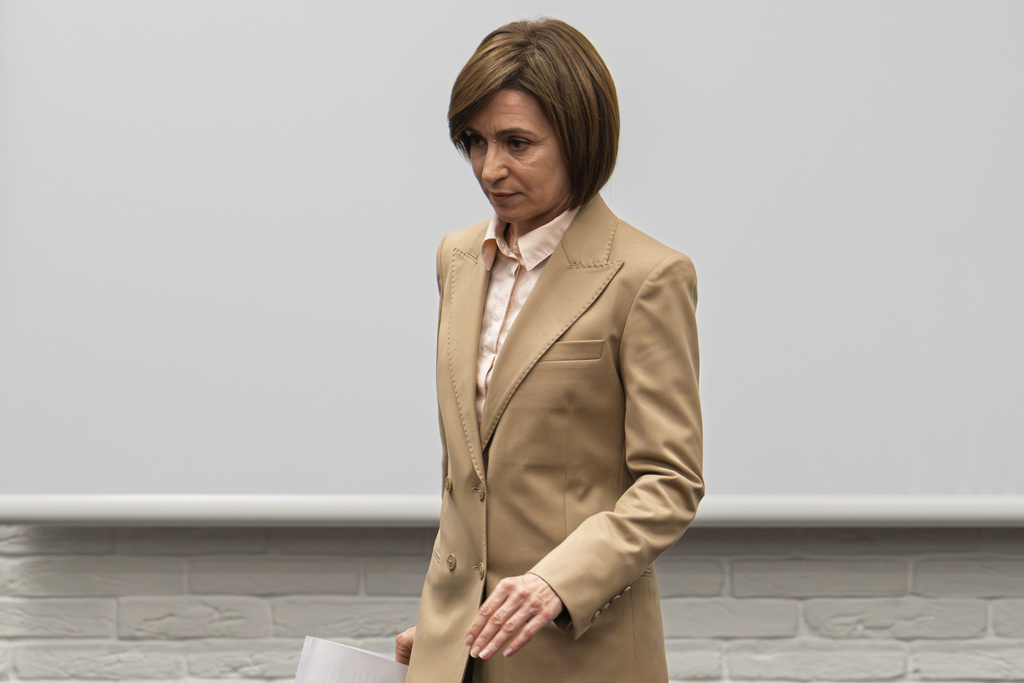The future of Moldova hangs in the balance after Sunday’s presidential election proved inconclusive and a referendum that saw a late surge in reporting from overseas polling stations swung the dial in favor of enshrining in its constitution the desire to join the European Union.
President Maia Sandu received 41 percent of the vote in her bid to win reelection, falling short of the 50 percent required to succeed in the first round of voting.
That means a run-off is scheduled to take place on Nov. 3 against second-placed Alexandr Stoianoglo, a socialist politician and former prosecutor more sympathetic to the country’s cultural ties with Russia than his pro-EU competitor.
With a long list of presidential candidates on the ballot and the pro-Russian faction in the country unable to rally behind one candidate in the first round of voting, Sandu’s reelection is far from a foregone conclusion, with Stoianoglo expected to secure a majority of the votes from other left-wing candidates including Renato Usatîi and Irina Vlah who came third and fourth, respectively.
A defeat for Sandu could drastically change the country’s direction of travel away from the European integration the current administration has sought since her coming to power in 2020.
Meanwhile, the referendum result was considered too close to call for much of the night after a majority of the electorate in Moldova voted to reject enshrining EU membership aspirations into the country’s constitution.
Preliminary reports suggested a shock victory for the anti-EU advocates with “No” leading with 55 percent of the vote when counting was nearly completed in the country.
However, a large diaspora vote of over 200,000 was counted late and was found to be overwhelmingly pro-EU by around 4:1, resulting in a provisional “Yes” victory for Sandu and her pro-EU administration.
With 99.4 percent of the vote counted by Monday lunchtime, “Yes” was leading “No” by 746,000 to 734,500 votes — or 50.42 percent to 49.58 percent.
During the evening, the Moldovan president issued a statement claiming foreign interference from Moscow had impacted both elections.
“Moldova has faced an unprecedented assault on our country’s freedom and democracy, both today and in recent months,” she told a press conference.
“We have clear evidence that these criminal groups aimed to buy 300,000 votes – a fraud of unprecedented scale. Their objective was to undermine a democratic process. Their intention is to spread fear and panic in society.
“We will not back down from defending democracy and freedom. We are waiting for the final results, and we will respond with firm decisions,” she added.






